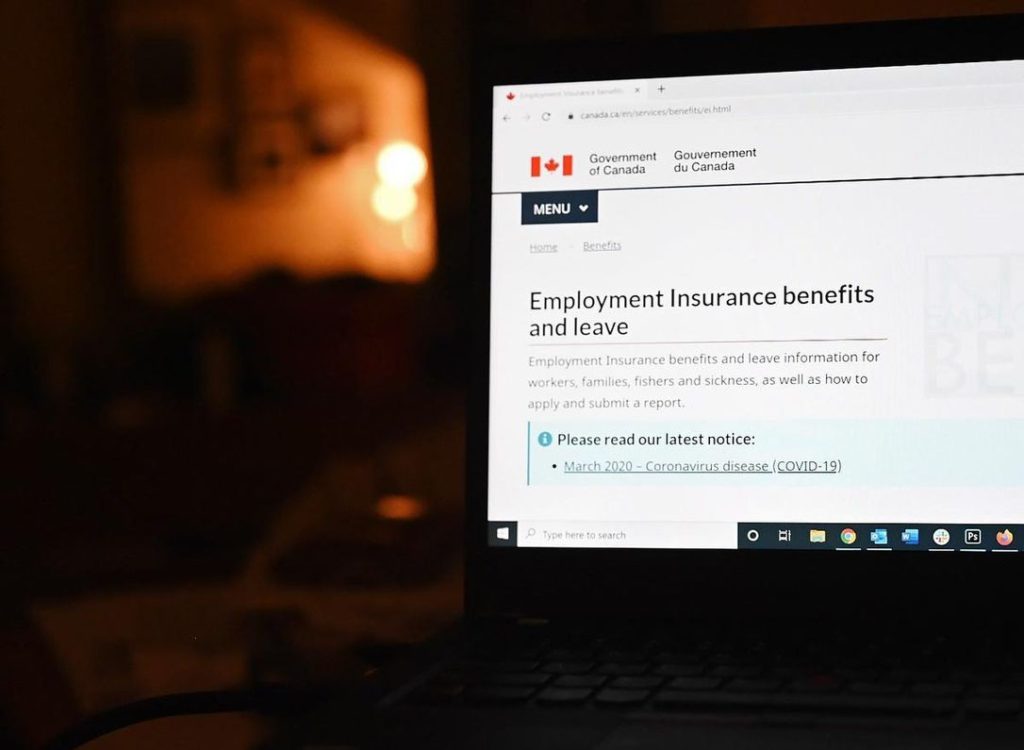This op-ed was authored by Armine Yalnizyan and Laurell Ritchie and originally published in the Toronto Star, on Monday, June 15, 2020.
On July 4, about two million people will stop receiving the Canada Emergency Response Benefit (CERB) but will be ineligible for Employment Insurance (EI). There will not be two million jobs available to absorb these workers, given the pace and restrictions on reopening the economy.
The Government of Canada introduced Bill C-17 to lay out Phase II of CERB. Critically, the bill currently envisions no further supports for people who received CERB for the maximum of 16 weeks from March 15 to July 5. That’s a disaster in the making for individuals, families and the larger economy.
Among other things the bill introduces new penalties and eligibility rules, including a requirement to return to work when asked by an employer.
Losing eligibility for income support when a worker’s safety and livelihood may be at risk is never good policy, much less so during a pandemic.
Bill C-17 places the entire burden of reopening the economy on workers. Should the Government of Canada continue with this lopsided approach, it will undo months of goodwill and social solidarity it has built by its commitment to “have the backs of Canadians” during the pandemic. It will also violate the very foundation of a resilient recovery: healthy and safe workplaces though reduction of the risk of contagion. The asymmetries are profound.
First, Bill C-17 lays out a complex set of fines and prison time for workers who received CERB when ineligible or knowingly provided misinformation. These proposed penalties are overkill, and will likely be constitutionally challenged. They should be dropped.
CRA already has the authority and power to investigate and prosecute scammers who are defrauding CERB (like organized fraudsters reportedly signing up ineligible seniors in exchange for an upfront 10 per cut). These powers should be enough to deal with organized players trying to game the system.
Should the Government of Canada insist on proceeding with new penalties for workers who knowingly received CERB when ineligible, it must also introduce new penalties for employers who knowingly fail to create a safe workplace. Those employers if they have 30 per cent revenue losses will continue to receive federal supports, but not workers.
As for any requirement to return to work, some may think any job is a good job. But consider the following. The fully 61 per cent of workers who can’t work from home may have workplaces that are not able to provide physical distancing or lack personal protective equipment or ways to sanitize. Workers may want to work but lack child care.
Others may need to balance the reasonableness of commute times against hours of paid work (two hours on public transit — another potential vector of COVID-19 transmission — for a three-hour shift). Many workplaces are offering fewer shifts or unpredictable hours due to reduced volume of business. Others are cutting pay rates to minimize losses, while refusing to apply for the Canadian Emergency Wage Subsidy or EI Work Sharing.
Although courts define a reduction in pay/hours that results in a 20 per cent loss of earnings as constructive dismissal, this isn’t a consideration in Bill C-17 and the Canada Revenue Agency (CRA) has no relevant policy or jurisprudence. In fact, CRA has no system of investigating or adjudicating any work refusals.
We’ve suggested some other approaches in a submission to the Prime Minister’s Office and the Privy Council Office. We’ve also identified issues that will not be simple to fix.
We understand this is a challenging time for employers. They have had their own difficulties trying to get CRA and Service Canada assistance during the pandemic. They understand it is not realistic to get help to police work refusals.
Consequently, their business lobby groups have pushed for changes to the rules so they can threaten workers with the loss of CERB and EI if they object to erratic schedules, pay cuts, inadequate child care, unsafe conditions, or personal health risks. They don’t need to use a whip to get people back to work. They just need to have one. Bill C-17 hands employers a whip, by disentitling workers who don’t accede to virtually any working condition.
Clearly constraints on workers’ availability make it difficult to restart some businesses. There are many contradictions because we all want the economy to reboot as soon as possible. But no amount of wishing to be past a world-wide pandemic puts us there.
Whether a region is in Stage 1 or 2 of reopening, the possibility of serious illness or death is still very real for some of Canada’s workers, especially the racialized working poor who already live in contagion hot spots and by extension their families and communities.
We quickly need a fair emergency benefit system, with symmetrical extension of access and protection for workers and employers. A plan for durable recovery will stabilize the economy and job market, and protects everyone’s health.
Armine Yalnizyan is an economist and the Atkinson Fellow on the Future of Workers. Laurell Ritchie is with the EI Working Group of the Good Jobs for All Coalition.

